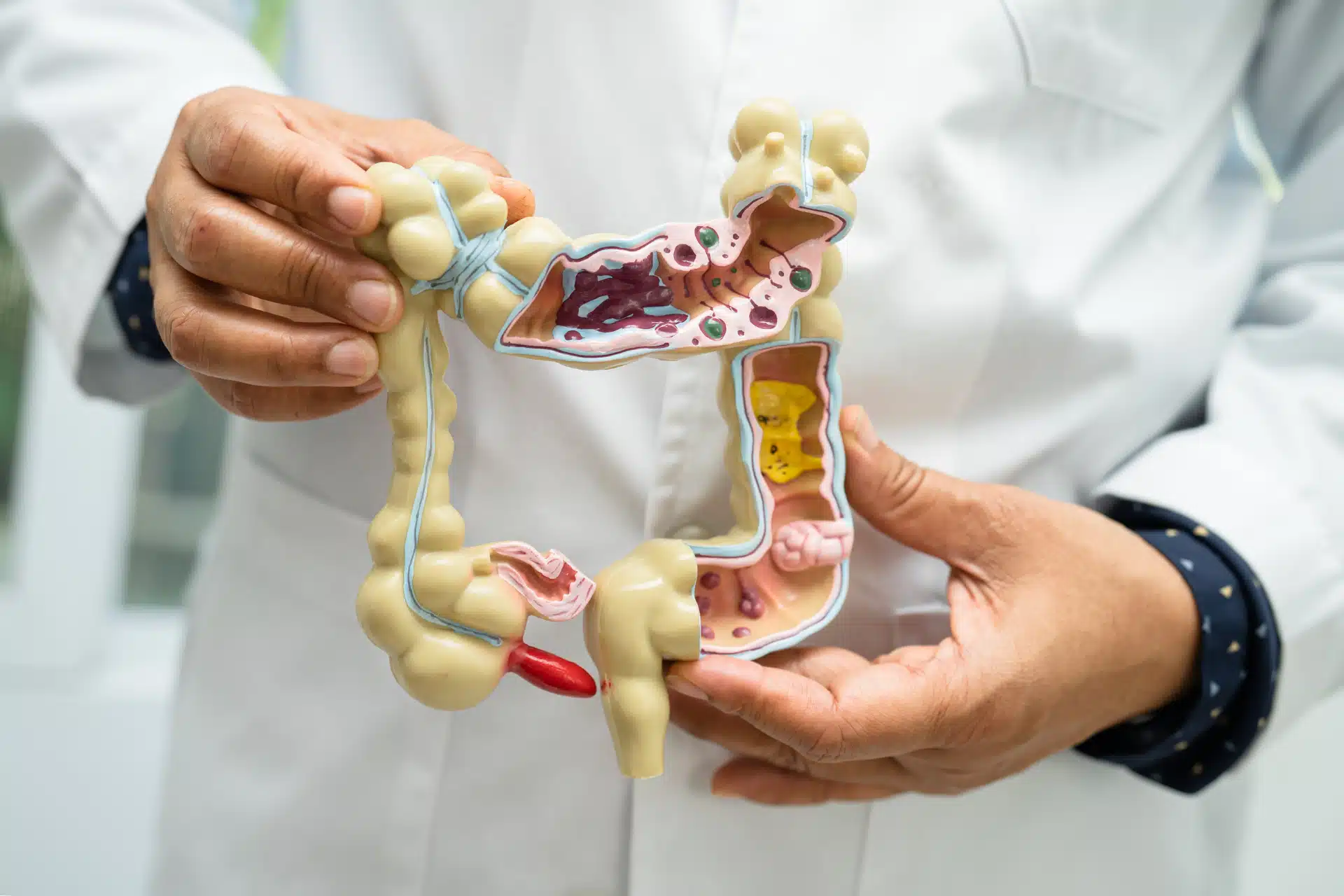The ketogenic diet, commonly referred to as the keto diet, is renowned for its high-fat, low-carbohydrate approach, which aims to put the body into a state of ketosis. In ketosis, the body burns fat for fuel instead of carbohydrates, leading to a variety of health benefits. While much of the discussion around keto focuses on weight loss and energy levels, its impact on gut health is an equally important aspect that often goes overlooked.
Gut health is crucial for overall wellness, affecting everything from digestion to immune function. The gut microbiome, consisting of trillions of bacteria, plays a pivotal role in maintaining this health. As the keto diet alters an individual’s nutrient intake dramatically, it can also significantly impact the composition and function of these gut bacteria.
In this article, we will explore how transitioning to a keto diet affects gut health, the potential benefits, and the challenges one might face. Additionally, we’ll provide practical tips to optimize your gut health while adhering to the ketogenic lifestyle. Whether you’re a seasoned keto enthusiast or considering this dietary approach, understanding its influence on gut health will help you make informed choices to support your overall health and well-being.
The Gut Microbiome and Keto
The gut microbiome consists of a complex community of microorganisms that reside in the digestive tract, playing a crucial role in health and disease. The composition of this microbiome is highly responsive to dietary changes, making the ketogenic diet a significant influencer of gut bacterial populations.
Impact of High Fat and Low Carb on Microbial Diversity
A ketogenic diet, with its high fat and low carbohydrate content, can alter the gut microbiome’s composition. Initially, this change can lead to a decrease in the diversity of gut bacteria, primarily due to the reduced intake of carbohydrates and dietary fiber—key nutrients that feed a broad spectrum of gut bacteria.
Research shows that within a short period of starting a keto diet, there can be a notable reduction in the populations of Firmicutes and Bacteroidetes—two major bacterial phyla that are critical for fermenting fibers and producing short-chain fatty acids (SCFAs). This shift can influence everything from nutrient absorption to immune system responses.
Ketogenic Diet and Beneficial Bacterial Growth
Despite potential reductions in microbial diversity, the ketogenic diet can also encourage the growth of specific beneficial bacterial strains. For instance, increased levels of Alistipes and Lactobacillus have been observed in individuals following a ketogenic regimen. These bacteria are known for their anti-inflammatory properties and their role in strengthening gut barrier functions.
Furthermore, the ketogenic diet’s high-fat content can increase the abundance of bacteria that are adept at metabolizing fats, such as certain members of the Clostridiaceae family. These changes can enhance the gut’s ability to break down and absorb fats more efficiently, potentially benefiting those on a keto diet by improving energy utilization and metabolic health.
Adapting Fiber Intake for a Healthy Keto Microbiome
To mitigate the impact of reduced microbial diversity, it is advisable to incorporate keto-friendly, fiber-rich foods such as avocados, nuts, seeds, and non-starchy vegetables. These can provide the necessary substrates (prebiotics) to support a healthy and diverse microbiome. Additionally, supplementation with probiotics and prebiotics can further assist in maintaining a balanced gut environment, fostering the growth of beneficial bacteria and ensuring overall gut health during ketogenic dietary practices.
The Keto diet offers a scientifically proven method to shed excess body fat while enjoying delicious, satisfying meals. Thanks to its focus on high-fat, low-carb eating, the diet increases energy levels, improves mental clarity, and a more stable appetite.
Benefits of Keto for Gut Health
The ketogenic diet has been linked to several benefits for gut health, from reducing inflammation to enhancing the gut’s barrier function. Here, we delve into how adopting a keto lifestyle can positively impact the digestive system and overall gut health.
Reduction in Gut Inflammation
One of the most significant benefits of the ketogenic diet is its ability to reduce inflammation within the gut. High levels of sugar and refined carbs in typical diets can lead to increased gut inflammation and dysbiosis (an imbalance in the gut microbiome). The keto diet, by minimizing carbohydrate intake, can decrease the production of inflammatory cytokines and increase the production of anti-inflammatory ketones, such as beta-hydroxybutyrate. This shift helps to reduce overall inflammation in the body, including the gut.
Enhancement of Gut Barrier Integrity
The gut barrier is our first line of defense against pathogens and toxins from the external environment. A well-functioning gut barrier reduces the risk of autoimmune diseases and enhances overall health. Studies have shown that the ketogenic diet can strengthen this barrier by increasing the production of gut cells and enhancing the production of proteins that tighten the gut junctions. This reinforcement of the gut barrier can prevent the translocation of harmful substances into the bloodstream, thereby maintaining gut integrity and health.
Improved Digestive Efficiency
Switching to a diet that’s higher in fats and lower in carbohydrates can also improve digestive efficiency, particularly in metabolizing fats. Since the ketogenic diet requires the body to utilize fats as the primary energy source, it adapts by enhancing the production of enzymes that break down fats. This adaptation not only aids in more efficient fat digestion but also helps in maintaining a healthy weight and reducing digestive stress.
Positive Changes in Microbial Health
As discussed earlier, the keto diet leads to changes in the microbial community within the gut. These changes are often beneficial, as they can promote the growth of beneficial bacteria that are involved in reducing obesity, enhancing mental health, and improving metabolic functions. By fostering a healthier microbial environment, the ketogenic diet contributes to broader health benefits beyond simple weight management.

Challenges and Considerations
While the ketogenic diet offers numerous benefits for gut health, it also presents certain challenges that individuals should be aware of. Here, we explore some common issues and considerations to keep in mind to ensure optimal gut health while on a keto diet.
Initial Digestive Discomfort
Many individuals experience digestive discomfort, such as constipation or diarrhea, when they first transition to a ketogenic diet. This is often due to the drastic reduction in carbohydrate and fiber intake. Fiber is crucial for bowel regularity, and without adequate amounts, digestive issues can occur.
Risk of Reduced Microbial Diversity
As previously discussed, the ketogenic diet can lead to changes in the gut microbiome, including a reduction in microbial diversity. This decrease can be problematic, as a diverse gut microbiome is associated with better overall health and reduced risk of diseases. Monitoring and adjusting the diet to include a variety of fiber sources, even within the constraints of keto, can help mitigate this issue.
Nutritional Deficiencies
The restrictive nature of the ketogenic diet can also lead to nutritional deficiencies if not properly managed. Important nutrients that are often low in a ketogenic diet include fiber, vitamins, and minerals typically found in fruits, grains, and certain vegetables. It’s crucial to plan meals carefully to include nutrient-dense, keto-friendly foods and consider supplementation where necessary.
Consideration of Preexisting Health Conditions
Individuals with preexisting gut-related conditions, such as irritable bowel syndrome (IBS) or inflammatory bowel disease (IBD), should approach the ketogenic diet with caution. Changes in diet can exacerbate symptoms, so it’s essential to consult healthcare providers before making significant dietary adjustments.
Importance of Gradual Transition
A gradual transition to a ketogenic diet can help the body adapt more smoothly and reduce potential negative impacts on gut health. Slowly reducing carbohydrate intake and increasing fat consumption allows the gut microbiome time to adjust, potentially minimizing discomfort and supporting a healthier adaptation.
Practical Tips for Optimizing Gut Health on Keto
Adopting a ketogenic diet doesn’t have to compromise gut health if managed wisely. Here are several practical tips to ensure your gut remains healthy and vibrant while you benefit from the metabolic advantages of ketosis.
Incorporate Keto-Friendly Fiber Sources
Fiber plays a vital role in digestive health, feeding beneficial gut bacteria, and promoting regular bowel movements. Include high-fiber, low-carb vegetables like broccoli, cauliflower, and leafy greens. Nuts, seeds, and avocados are also excellent sources of fiber and healthy fats, making them perfect for the keto diet.

Stay Hydrated
Drinking adequate water is crucial on a ketogenic diet, as it can help mitigate the initial side effects of carb withdrawal, such as constipation and dehydration. Water aids digestion and helps maintain the balance of good bacteria in the gut.
Consider Fermented Foods and Probiotics
Fermented foods like sauerkraut, kimchi, and yogurt (low in carbs) can introduce beneficial bacteria into your gut. If these foods aren’t appealing, probiotic supplements can be an effective alternative to help maintain a healthy gut microbiome.
Regular Monitoring and Adjustments
Listen to your body and adjust your diet as needed. If you experience digestive issues, consider introducing more prebiotic-rich foods or adjusting your fat intake. Regular health check-ups and consultations with a dietitian can help tailor the diet to your specific health needs.
Manage Stress and Get Adequate Sleep
Stress and lack of sleep can negatively affect gut health. Engaging in regular physical activity, practicing stress-reduction techniques like meditation or yoga, and ensuring you get enough sleep can all support a healthy gut.
Conclusion
Embracing a ketogenic diet can have profound effects on your overall health, particularly when it comes to managing and enhancing gut health. While the transition might present challenges such as initial digestive discomfort and changes in microbial diversity, the long-term benefits can be significant. These include reduced inflammation, enhanced gut barrier integrity, and an overall improvement in digestive efficiency.
By implementing practical strategies such as incorporating diverse fiber sources, staying hydrated, and using probiotics, you can maximize the gut health benefits of a ketogenic diet. It’s also important to monitor your body’s responses and make adjustments as needed, potentially with the guidance of a healthcare professional.
Ultimately, the key to success with keto and gut health lies in careful dietary planning and a proactive approach to maintaining balance in your gut microbiome. With these measures in place, the ketogenic diet can be a sustainable and beneficial lifestyle choice for those looking to improve their gut health and overall well-being.



















